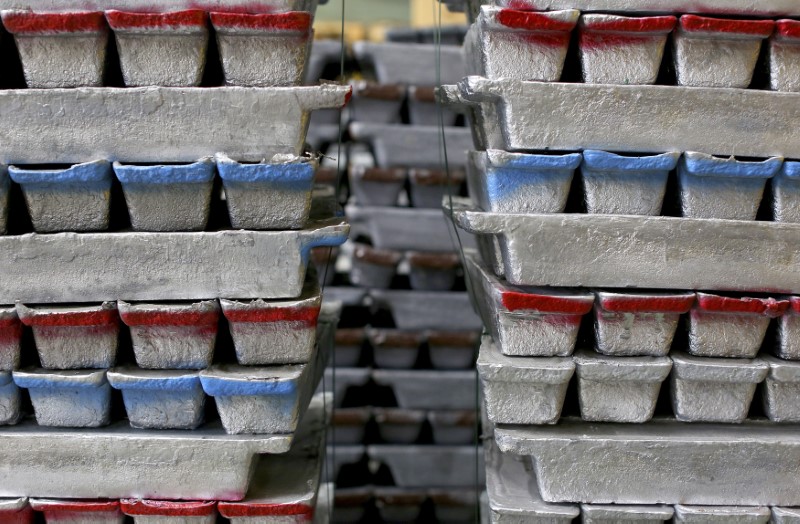By Pratima Desai
LONDON (Reuters) - Investors are starting to focus on lead due to the large amounts of the metal in batteries used in increasingly popular stop-start cars produced by automakers aiming to comply with stringent new emissions legislation.
In stop-start autos the engine automatically cuts off when a car comes to a stop and restarts as the foot comes off the brake, reducing idling time and noxious fumes. But multiple stops and starts mean more wear and tear, so the batteries used in these cars need to be heavier and stronger.
"In a smaller stop-start car battery such as Golf or Ford Focus roughly 16 kg lead are used, which is about 28 percent more than in a normal car," Christian Riedel, director of communications EMEA at Johnson Controls (N:JCI) said.
"Stop-start battery technology is now integrated into 35 million cars worldwide," Riedel said.
That is nearly 40 percent of global car sales estimated at 89 million last year by analysts at Morgan Stanley (NYSE:MS).
It far surpasses sales of the 1.1 million electric vehicles and plug-in hybrid vehicles last year, which consultants at CRU Group say could reach 4.4 million in 2021 and more than 6 million by 2025.
"The electric vehicle market is growing, but as a percentage of the total it is small," said a Europe-based fund manager with exposure to physical lead through the London Metal Exchange.
"Stop-start is a stop-gap until the charging infrastructure for electric cars is in place, which is a future away, and until they are more affordable for most people."
Germany's BMW (DE:BMWG) made nearly 2.367 million cars in 2016, of which more than 99 percent -- 2.359 million -- were stop-start.
'NOT ROCKET SCIENCE'
Johnson Controls expects to make 50 million stop-start batteries by 2020 from 17 million last year when it sold 152 million batteries overall. It competes with smaller rivals Tokyo-listed GS Yuasa (T:6674) and privately-owned U.S.-based Exide Technologies.
"The engineering and technology are already there. Stop-start is a cheap, effective, low tech way for automakers to reduce emissions from their range of cars to meet legislative requirements," said Farid Ahmed, lead analyst at consultants Wood Mackenzie.
"It's not rocket science. Give it till 2020 and you will probably find all new cars in Europe and Japan are stop-start, with the U.S. and China catching up fast."
Estimates of new registrations of stop-start cars in Europe and Japan currently range between two-thirds and three-quarters, while in the United States and China the proportion is roughly one-tenth.
Around 85 percent of global lead demand is used to make batteries, mostly for autos, demand for which is growing in countries such as Brazil, Argentina, Russia and China.
China, struggling with noxious emissions and worried pollution could stir social unrest, launched a clear air campaign in 2014. It is aiming to provide clean air in its largest cities for 80 percent of each year by 2020.
Affluence also means China will graduate from e-bikes to regular cars, but the cost of electric vehicles is out of reach for most, another investor source said. "Most of the new demand for lead will come from automotive," the source said.
Those set to benefit include the world's largest producer, privately-owned ECOBAT Technologies, which supplies 840,000 tonnes of lead and lead alloys a year from operations in Europe, the United States and South Africa.
Other large producers are Korea Zinc (KS:010130), which plans to produce 425,000 tonnes of lead this year, and Glencore (LON:GLEN)
Ahmed expects lead demand to grow an average 3.1 percent a year between now and 2020 and expects a deficit of 86,000 tonnes this year in a market estimated at roughly 12.5 million tonnes.
Expectations of shortages in coming years helped benchmark London Metal Exchange lead
Stocks of lead in LME approved warehouses overall have been fairly steady since May 2016 at around 190,000 tonnes. But a sign of stronger demand is in cancelled warrants - metal that has been bought and due to leave the network - at roughly 36 percent of the total.
"Traders may be taking positions because they see tightness ahead," Neil Hawkes, lead analyst at consultants CRU.
